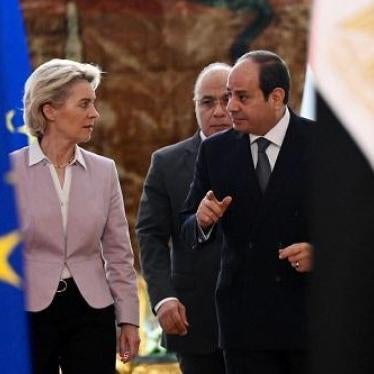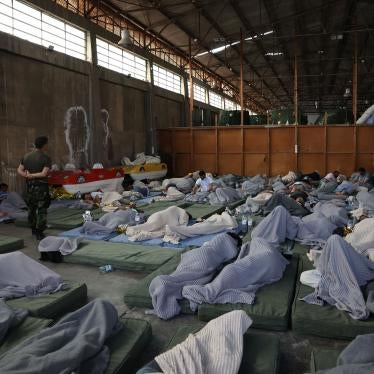Politicians are not well known for going out of their way to change their attitudes. Yet the plight of refugees is spurring them to do just that. Politicians need to convince voters that refugees are not a burden, but people in need of protection, with names and rights, who should be treated with respect. Moreover, equitably distributing refugees in the EU means that European politicians will have to give up their national egoism. Can they rise to the challenge?
The flight of desperate refugees across the Mediterranean to Europe is one of the greatest crises and challenges of our time. European politicians have long been blind to the seriousness of the situation. But this changed on April 19 when catastrophe occurred and 800 people drowned in a single incident just 130 miles off the coast of Lampedusa. A rescue operation began that was similar in scope to the Italian Mare Nostrum operation, which had been stopped unnecessarily.
Europe’s response should show true greatness. The continent needs to warmly receive the rescued. It must offer protection to people who have been politically persecuted and those fleeing war and violence. Europe should also treat people who take the perilous voyage with dignity, even if they do so out of economic needs. These people, disrespectfully labelled “economic refugees,” have nonetheless suffered hardships and they have rights.
Our politicians, however, are already beginning to haggle with each other again, and base their arguments purely on numbers. The UK, Poland and the Czech Republic are at the forefront of this move, but their efforts are jeopardizing the European Commission’s attempt to distribute refugees more equitably and thereby both create humane living conditions for refugees and reach out to the overstrained countries of Italy, Greece and Malta.
Federal Interior Minister Thomas de Maizière has also started on the math. He is demanding that Europe factor in the number of refugees that Germany has already taken in when calculating how to divide future numbers. This is proof of small-mindedness, but also of mathematical clumsiness. Germany has clearly taken in more refugees than any other EU country north of the Alps. However, in proportion to Germany’s population of 80 million, the country has received far fewer refugees than Sweden or Denmark. Europe, however, can no longer afford such persnickety and hypocritical approaches.
Moreover, the European Commission’s proposal is very modest indeed. It plans to accommodate 20,000 recognized refugees, mainly from Syria, over a period of two years. That is just 0.004 per cent of the EU’s total population and a shamefully small number compared with the millions provided refuge by Jordan, Lebanon and Turkey.
Beyond accepting a larger number of refugees and a more equitable division of refugee numbers, the EU urgently needs to ease regulations on family reunification and humanitarian visas. This would enable refugees to travel legally and securely to the EU without being driven into the clutches of traffickers and the dangers that this brings with it. Easing these regulations would be an effective and humane method of driving the traffickers and their floating coffins out of business.
For the sake of a considerate migration policy, the EU and its member states should promote compliance with human rights commitments in the countries of origin and transit. The EU must ensure that migrants do not become trapped in countries such as Egypt or Libya, or are deported to their countries of origin where their lives are gravely threatened. In the long-term, only global adherence to human rights standards will prevent people from fleeing their home countries. This insight, however, cannot save people now. Instead, it is a truism that politicians can use when they run out of ideas. Incidentally, politicians who make fools of themselves by using such statements are rarely the keenest advocates of human rights.
At their summit on June 25 and 26, the heads of the EU aim to develop a strategy to solve the Mediterranean refugee crisis. This represents a decisive turning point for the EU. It is an opportunity to show the world that the EU can react with humanity and solidarity to the refugee crisis unfolding on its borders. Germany will play a key role in the development of this strategy.
In difficult periods, such as the one we currently face, international law and human rights considerations become particularly important as carrying them out involves overcoming political resistance. It is essential for EU leaders not to forget this.









